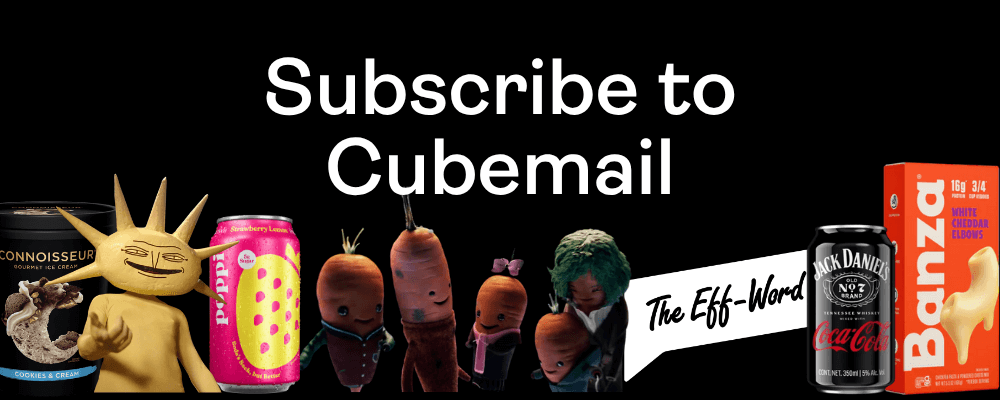
Unfortunately, Internet Explorer is an outdated browser and we do not currently support it.
To have the best browsing experience, please use Google Chrome, Firefox, Microsoft Edge or Safari.
We use cookies to improve your experience on our website. By continuing to browse this website, you agree to our use of cookies. For more information, please refer to our privacy policy.

This is a self-funded case study using our Advertising Testing solution.
On-going mining of the IPA database by Les Binet and Peter Field has provided marketers with a thorough understanding of the types of advertising that drives brand growth, both in the short and long term. Their findings point conclusively to the role of emotion. Advertising which creates positive memories and feelings influences our decision-making and behaviour. Why? Because human beings use short-cuts to make decisions as quickly as possible. Thus, if something makes us feel good – it must be a good choice. Emotionally-geared advertising which makes us feel things like happiness, inspiration, amusement and warmth helps to build these positive brand associations. Each exposure creates incremental benefits which positively impact long-term outcomes. Thankfully, more and more advertisers are cottoning on to this, with McDonald’s latest ad – ‘Made for Family’ – designed to tug at the heartstrings.
The DDB Sydney produced 60” spot tells the story of a little girl and her parents who move from their charming county home surrounded by vast green pastures, to the hustle and bustle of inner-city. The little girl struggles to adjust – losing the space and freedom she once enjoyed, the animals she adored and quality time with her family. She yearns to be back home. When her father appears at her bedroom door and greets her with a warm smile, her face lights up in anticipation of the family adventure that awaits. As the golden arches come into view of the car, she finally feels like she’s back home again in the familiarity and comfort of McDonalds.

The narrative takes viewers on a highly emotional journey, with feelings of sadness (16%) eventually replaced by warmth (70%) and happiness (32%). These powerful and varied emotions are enhanced by the beautiful rendition of Fleetwood Mac’s ‘Everywhere’ soundtrack, and combined with animals and children they prove to be a potent formula for engaging viewers.
“I liked the characters, the setting, the stress involved in moving, saying goodbye, the new chapter, new area, house, school, job, but one thing remains the same no matter where you are or go, there is one thing that’s always the same – the Big M with your favourite meals”
“It made it feel like that even in a world of changes, McDonald’s will always be a stable, feeling of home”
“They are the warm, familiar constant for a lot of kids”
As a result, the ad achieves very high levels of likeability (up 9% versus Norm), while importantly it also creates the perception that McDonald’s is different to other fast-food brands (up 17%). In a notoriously cluttered category which typically has a heavy product and promotional focus, the emotionally-led strategy taken by McDonald’s enables them to engage consumers on a deeper level.
“It seemed honest, less gimmicky than normal ads for fast food chains”

However, as important as emotions are, without meaningful linkage back to the brand, advertising dollars can be wasted, or – worse still – directly benefit competitors. While the ad is structurally sound with McDonald’s painted as the hero in resolving the tension of the homesick girl, the challenge is that consumers don’t buy in to the strategy – McDonald’s solving deep and complex personal issues isn’t found to be authentic or credible (down 8%). Subsequently, persuasion (down 5%) and positive brand feelings (up 2%) are both average.
“I can’t see the connection. It found me asking, really? McDonald’s?”
“McDonald’s cannot fix everything”
“They stop at a McDonald’s and that somehow made her feel at home. Strange”
“I found this ad quite sad and a bit depressing, and was not impressed that parents would take their child to a fast food restaurant to alleviate the pain of leaving a beloved home”
While the ad has a clear role for the brand and features the iconic golden arches (which are one of the strongest – if not the strongest – brand assets globally), issues around authenticity means there is a lack of fit (down 13%) between McDonald’s and the scenario depicted. Subsequently, the impressions viewers are left with aren’t distinctively for McDonald’s (down 6%).
“It was kind of a gotcha at the end as I didn’t realise it was for McDonald’s”
“Very generic. Initially I thought it was for NRMA”

In summary, ‘Made for Family’ strikes an emotional chord with viewers, but its effectiveness is diminished because the memories created aren’t being directly attributed to the brand. Kudos to McDonalds for making the brave decision to venture down this path; persistence will pay long-term dividends, particularly if they can build upon and leverage the distinctive assets they’ve started to create. Future focus should be on creating more authentic and relatable scenarios.

Want to test your own advertising, packaging, or product ideas? Cubery combines a team of creative effectiveness experts with cutting-edge technology, bridging the gap between creativity and commercial impact. Get in touch to learn how we can unlock growth for your brand.
